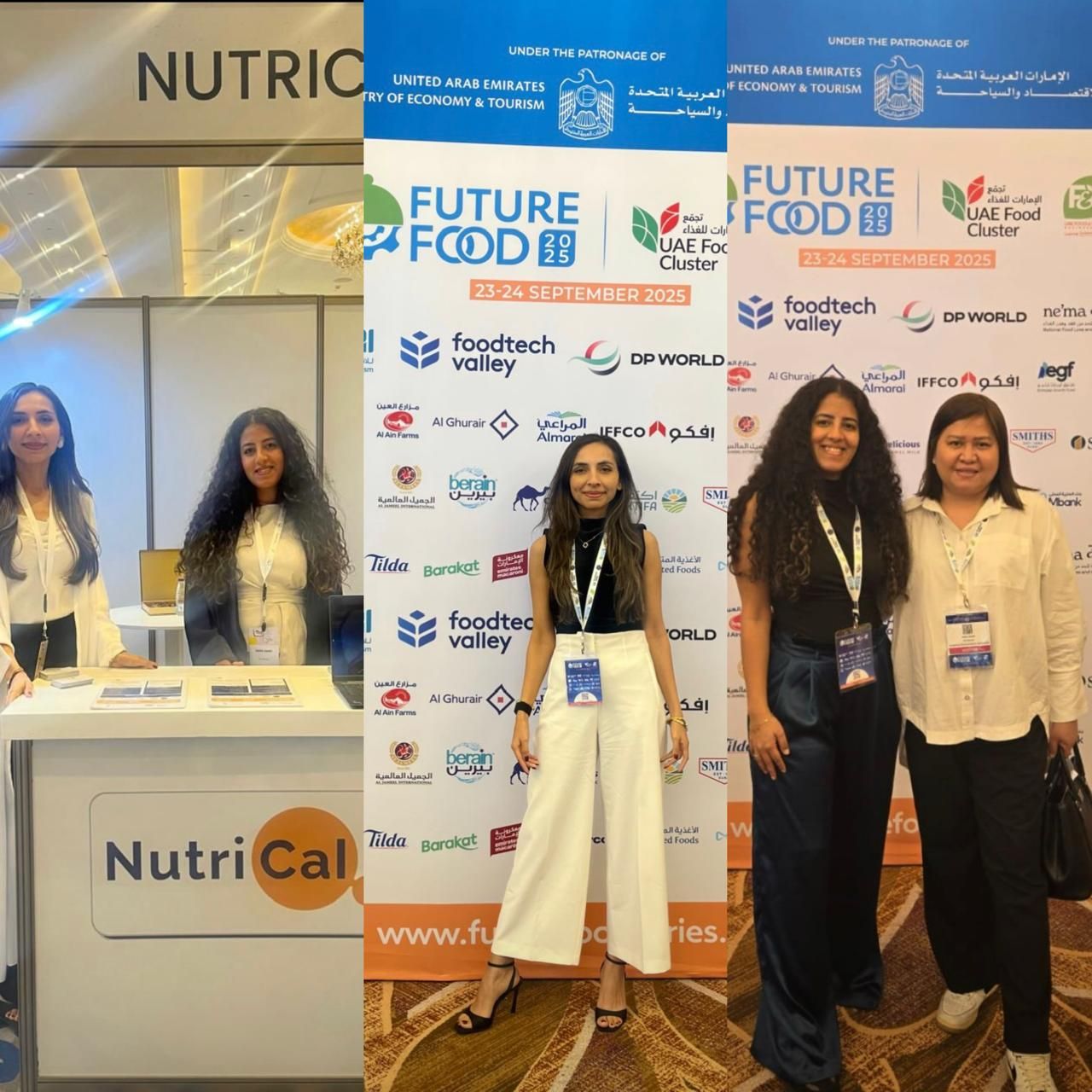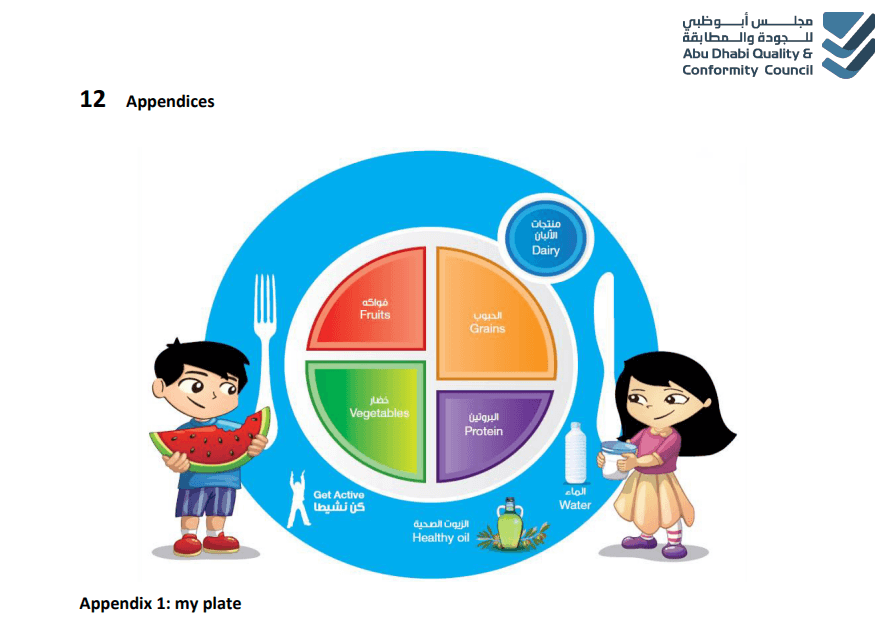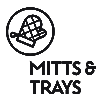The Future of Food is Here: How the Gulf is Building a Global Blueprint

The Future of Food is Here: How the Gulf is Building a Global Blueprint
The summer ended with a bang, setting the stage for an autumn of unprecedented momentum in the Gulf's food industry. This September was a whirlwind of insights and conversations, confirming a powerful shift: the region is no longer just adapting to global trends but is actively building and leading the future of food.
The energy is palpable. We are witnessing a move beyond compliance toward the creation of fully integrated ecosystems where food safety, trade, and innovation thrive together under a banner of powerful collaboration.
Here’s a look at the key developments shaping this new era.
Riyadh: A New Global Benchmark in Nutrition Transparency
The Fast Food & Café Convention in Riyadh was a masterclass in ambition, uniting the Kingdom's leading F&B brands. The star of the show was the groundbreaking SFDA menu labelling regulation—a true global pioneer in proactive consumer health communication.
One of the most creative innovations to emerge is the introduction of "walking minutes" on menus. This intuitive, consumer-friendly nudge translates calories into the number of minutes of walking required to burn them off, empowering people to make informed choices without complex calculations.
This transformation is happening at a staggering scale. Through platforms like ours at Nutrical, we are proud to power hundreds of brands, contributing to the milestone of over 50,000 menu items in KSA now having accessible nutritional information. This is a powerful testament to how digitalization and smart regulation can work hand-in-hand to make health data actionable for everyone.
Dubai: Engineering the Future of Trade, Clusters, and Entrepreneurship
In Dubai, Future Food UAE gathered the region's key decision-makers to chart an ambitious course forward. The discussions were intensely action-oriented, zeroing in on three strategic pillars:
1. Unleashing Trade with CEPA:
The message was clear: the UAE's Comprehensive Economic Partnership Agreements (CEPA) are a game-changer. With agreements already in place with 11 countries, including a landmark pact with India, and 10 more in conversation, the UAE is systematically dismantling trade barriers. As Ibtisam AlSaadi, Director of Industrial Policies and Legislation, stated, the goal is to enable manufacturers to export with "0 challenges," through lower tariffs, simplified customs, and clear rules. This strategic move, coupled with the "Make it in the Emirates" initiative, is creating an unparalleled export engine for local manufacturers.
2. Building Unbreakable Food Clusters:
Inspired by models like Switzerland’s Food & Nutrition Valley, leaders from Bühler, Silal, and Nestlé explored how to build resilience through collaboration. The core philosophy? "Work as a cluster, not individually. Two is stronger than one." This is supported by a drive for radical transparency, where, as Rami Habbal, CEO of GS1 UAE, envisions, a simple barcode scan can reveal a product's entire journey from farm to shelf.
3. Fueling a Diverse Startup Engine:
The UAE's vibrant ecosystem for innovators was on full display. With over 200 nationalities offering a unique test market and a notable shift from Agri-Tech to Food-Tech in academia, the conditions are ripe for innovation. The advice to entrepreneurs was direct: solve real consumer needs, ensure your idea is truly innovative in a crowded market, and most importantly, "Do not wait for too long, go out there and test it," as advised by Alix de Zelicourt of Talabat. This is backed by a remarkably diverse landscape where 50% of SMEs in the UAE are run by women.
The New Gulf Consumer: Data-Driven and Value-Seeking
Beyond high-level strategy, the event provided a crystal-clear snapshot of the modern Gulf consumer. Insights from Numerator revealed a market in rapid flux:
AI is the New Shopping Assistant: A staggering 70% of UAE consumers now use AI for shopping decisions, a 44% year-on-year increase.
The Rise of the Value Shopper: Consumers are actively controlling their basket size, shopping more frequently, and there is a significant shift towards discount channels.
Loyalty is Earned, Not Given: attracting new consumers is now the key to success for retailers.
The Momentum Continues: Join the Conversation
The dialogue doesn't stop here. The region's food evolution continues with key upcoming events, including Global Food Week Abu Dhabi, where we will explore "The Rise of Precision Nutrition & Personalized Meals," and the Dubai International Food Safety Conference, where science and policy converge to create tangible progress.
Frequently Asked Questions
What is the strategic goal of the UAE's CEPA agreements?
The goal is to position the UAE as a global hub by enhancing market access, eliminating tariffs on key goods, simplifying customs procedures, and creating clear, transparent rules for trade, ultimately allowing manufacturers to export with minimal barriers.
How are food clusters making the UAE's supply chain more resilient?
By fostering collaboration over competition, clusters strengthen the entire value chain. Companies share knowledge, infrastructure, and innovation, leading to greater transparency, traceability, and the ability to collectively solve challenges, building a more robust and self-sufficient food system.
What is the most important advice for a new F&B startup in the Gulf?
Thoroughly research the market to solve a real, unmet consumer need. With a high concentration of startups in certain categories, true innovation is key. Then, adopt a "test and learn" approach—get your product to market quickly to gather feedback and iterate.
The Main Takeaway: A Collaborative Blueprint in Action
The message is unequivocal: the UAE and Saudi Arabia are not just participants in the global food conversation—they are its architects.
From pioneering intuitive nutrition labelling and forging strategic trade pathways to building collaborative clusters and understanding the data-driven consumer, the region is writing a new, collaborative, and data-driven playbook for the future of food.
At Nutrical, we are proud to be a part of this dynamic ecosystem. Our role is to provide the data intelligence that powers this progress—helping everyone from FMCG manufacturers and hospitality brands to regulatory authorities drive compliance, build consumer trust, and achieve better health outcomes for all.
This is more than a moment; it's a movement. And the powerful collaboration across the entire F&B value chain is what will sustain it long into the future.
Government Partnership
Coming Soon
Frequently Asked Questions
NutriCal provides comprehensive nutritional analysis beyond calorie counts, encompassing allergens, meal types, and customized food labels. You can also effectively manage recipes, tailor menus, and generate insightful reports.
NutriCal is an online platform accessible from anywhere with an internet connection. Our services have a global reach, with a strong focus in the GCC region.
NutriCal collaborates with a diverse range of establishments, including food brands, suppliers, retail chains, and restaurants in the GCC.
Absolutely! NutriCal offers a complimentary trial period. Reach out to us to initiate your trial experience on our platform.
For detailed pricing information, please get in touch with our dedicated sales team. Our pricing plans are flexible and tailored to suit your specific business requirements.
We provide both monthly and annual subscription plans, granting you the choice to select the payment option that aligns best with your preferences.
NutriCal allows seamless integration of missing ingredients through credible data sources, ensuring a complete and personalized database.
NutriCal's data originates from reputable sources such as USDA and undergoes rigorous theoretical analysis, ensuring utmost precision in nutritional calculations.


















